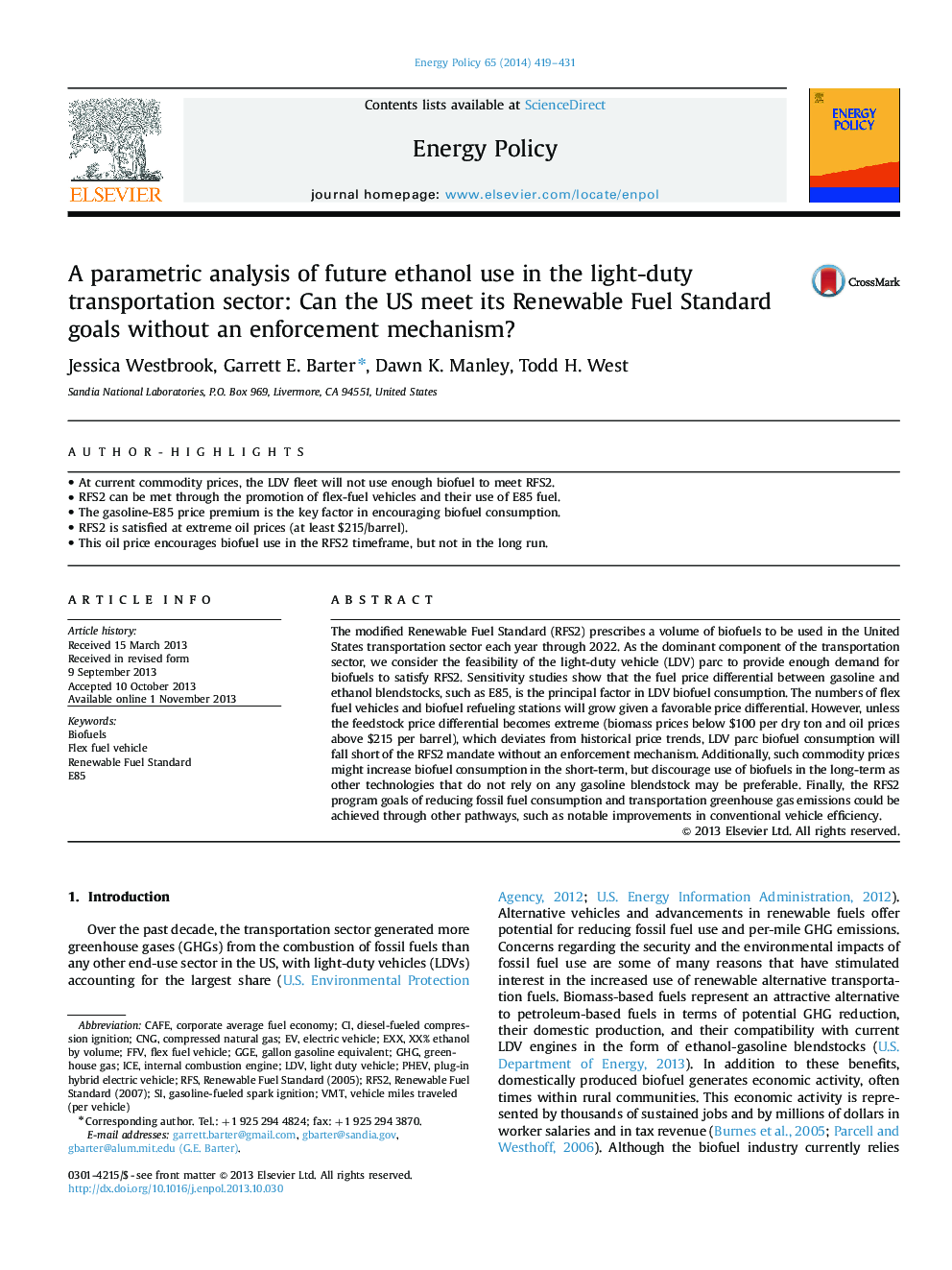| Article ID | Journal | Published Year | Pages | File Type |
|---|---|---|---|---|
| 7403218 | Energy Policy | 2014 | 13 Pages |
Abstract
The modified Renewable Fuel Standard (RFS2) prescribes a volume of biofuels to be used in the United States transportation sector each year through 2022. As the dominant component of the transportation sector, we consider the feasibility of the light-duty vehicle (LDV) parc to provide enough demand for biofuels to satisfy RFS2. Sensitivity studies show that the fuel price differential between gasoline and ethanol blendstocks, such as E85, is the principal factor in LDV biofuel consumption. The numbers of flex fuel vehicles and biofuel refueling stations will grow given a favorable price differential. However, unless the feedstock price differential becomes extreme (biomass prices below $100 per dry ton and oil prices above $215 per barrel), which deviates from historical price trends, LDV parc biofuel consumption will fall short of the RFS2 mandate without an enforcement mechanism. Additionally, such commodity prices might increase biofuel consumption in the short-term, but discourage use of biofuels in the long-term as other technologies that do not rely on any gasoline blendstock may be preferable. Finally, the RFS2 program goals of reducing fossil fuel consumption and transportation greenhouse gas emissions could be achieved through other pathways, such as notable improvements in conventional vehicle efficiency.
Keywords
Related Topics
Physical Sciences and Engineering
Energy
Energy Engineering and Power Technology
Authors
Jessica Westbrook, Garrett E. Barter, Dawn K. Manley, Todd H. West,
